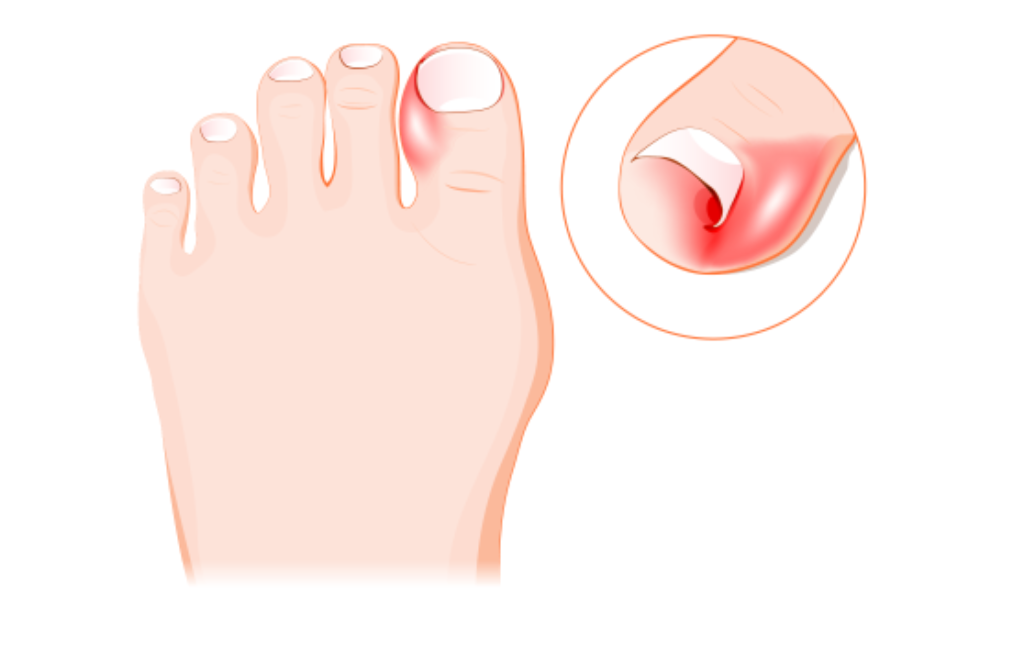
The patient hobbled into my office, clearly in pain. After she removed her right sneaker and sock, the cause was clear. Her big toe was inflamed, weeping, and warm to the touch. The diagnosis: An infected ingrown toenail.
Ingrown toenails are one of the most common problems I treat in my foot and ankle practice. They typically affect the big toe and occur when the toenail curves and grows into the skin next to it. As the nail digs in, the toe can become red and swollen, making it painful to walk or stand.
What causes this condition? A toenail is more likely to become ingrown if you wear tight-fitting shoes or your feet sweat easily. Cutting your nails too short or rounded at the edges can also increase your odds of developing it. Putting repeated pressure on the toe by running or kicking can also precipitate the condition as can a fungal infection or injury in the toe.
Certain patients are at higher risk for ingrown toenails due to diabetes or other medical conditions that cause them to retain water in their feet. Others have inherited a curved toenail shape that makes them more susceptible.
The proper treatment for an ingrown toenail depends on how severe it is. Patients who are obese or have an underlying medical condition such as diabetes, poor circulation or a weakened immune system should seek medical treatment right away.
For otherwise healthy patients, if the toenail is not too inflamed or painful, a room-temperature footbath with Epsom salts and gently massaging the side of the nail may help reduce the inflammation. Be sure to thoroughly dry your foot after the bath, apply an antiseptic to the affected area, then wait before putting on shoes. Open-toed shoes and loose-fitting socks should help reduce the pain.
If treating an ingrown toenail at home, do not cut a notch in the nail or repeatedly trim the nail border. These can make the condition worse. Over-the-counter topical medicines may mask the pain but won’t correct the underlying problem.
If the toe continues to bother you or if you suffer from other medical conditions, it’s important to see a physician. Left untreated, an ingrown toenail can become chronically inflamed, ooze pus, emit a strong odor and produce other signs of infection such as fatigue and fever.
Proper foot care can help prevent ingrown toenails. Avoid wearing shoes that are either too tight or too loose. Trim your toenails in a straight rather than curved line and do not cut them too short.
For more information about ingrown toenails or if you are experiencing foot problems, contact Wentz Foot & Ankle Specialists at
719-539-6600.
Dr. Ralph Wentz is a board-certified foot and ankle surgeon in Salida and a fellow of the American College of Foot and Ankle Surgeons.
